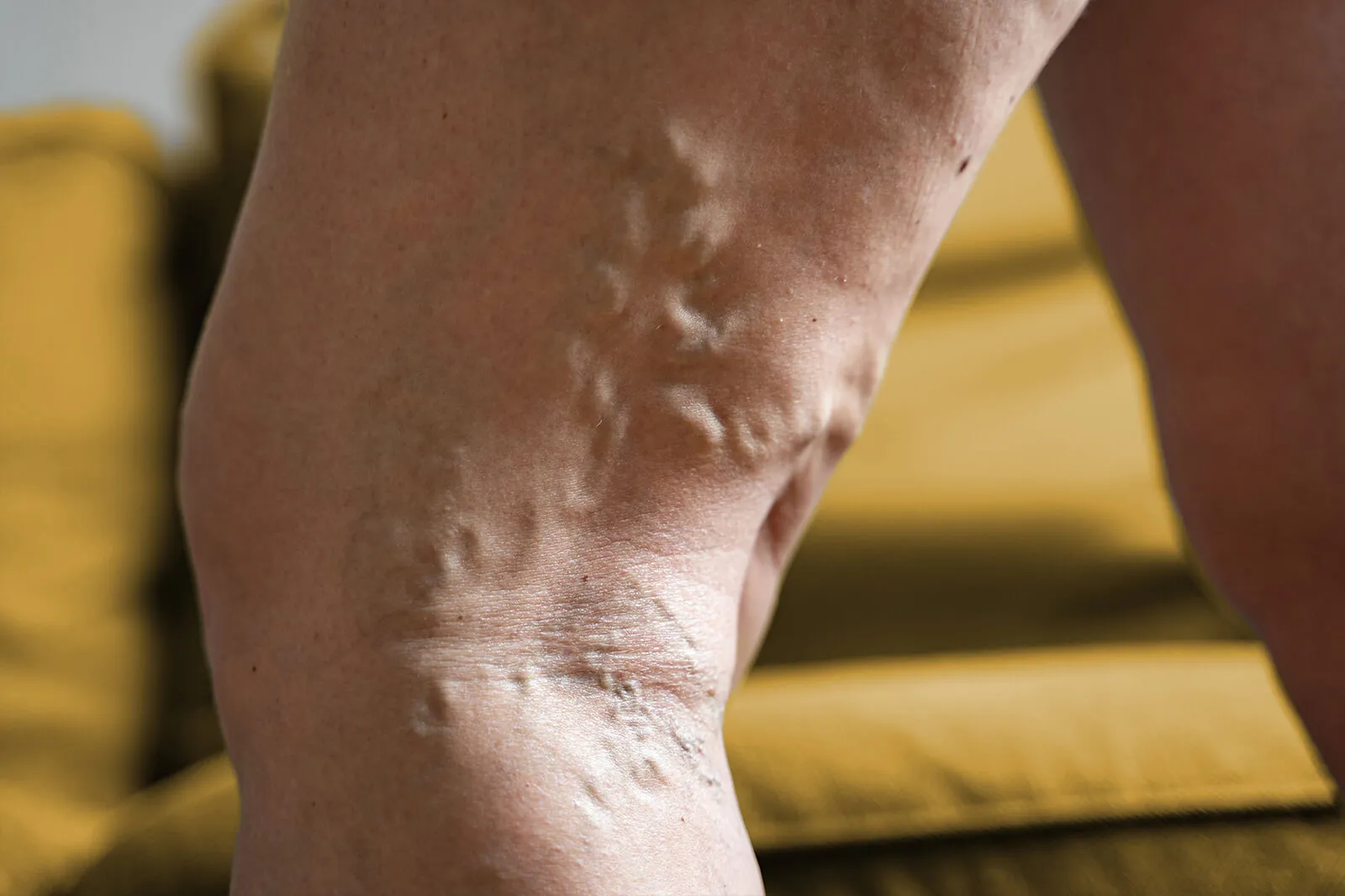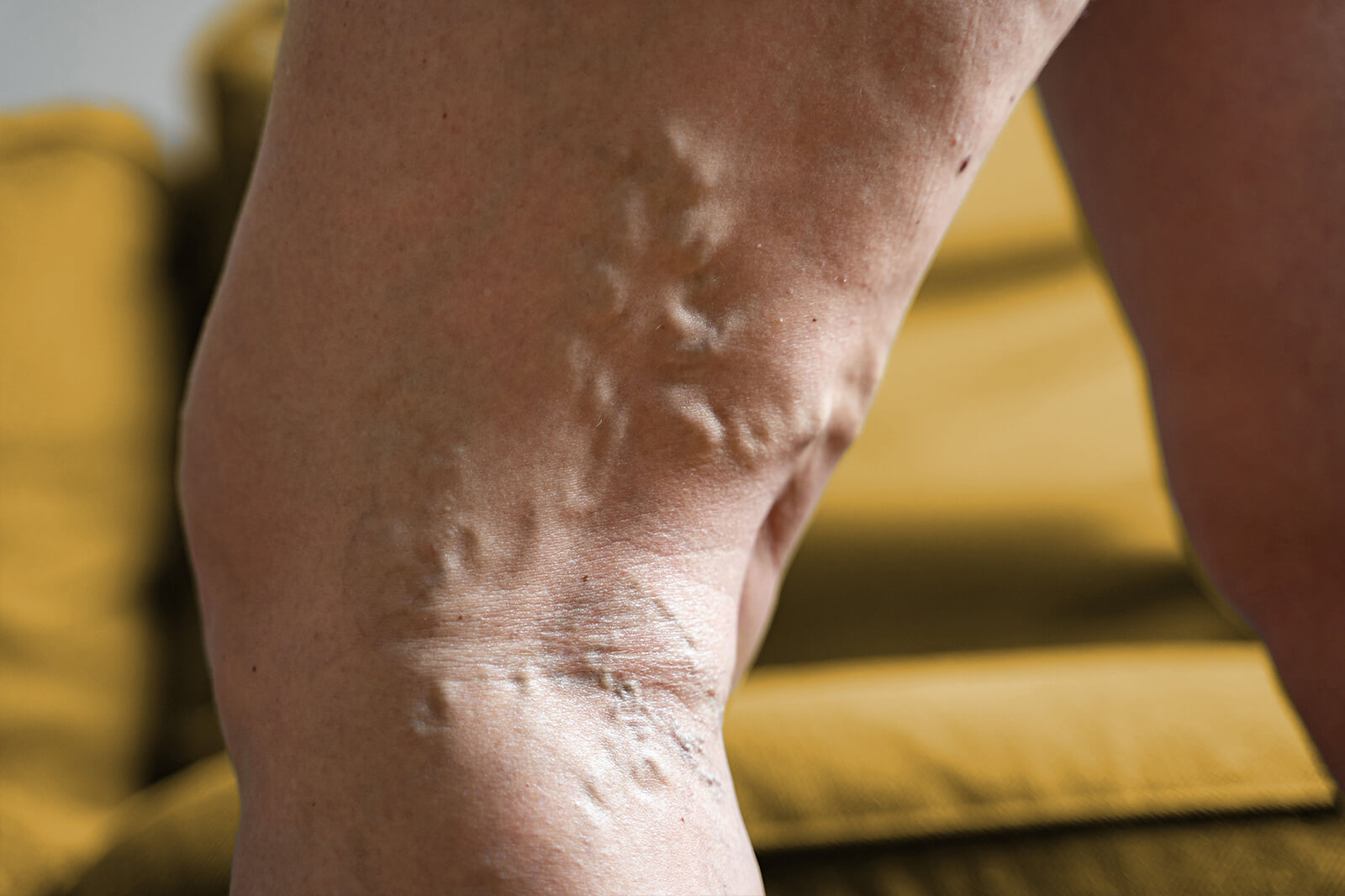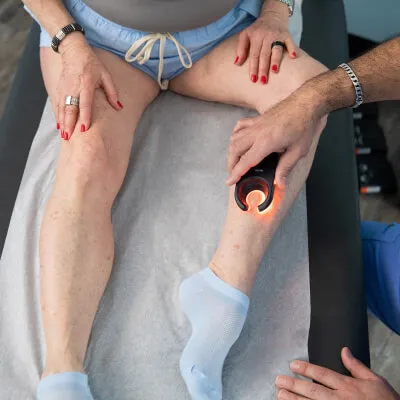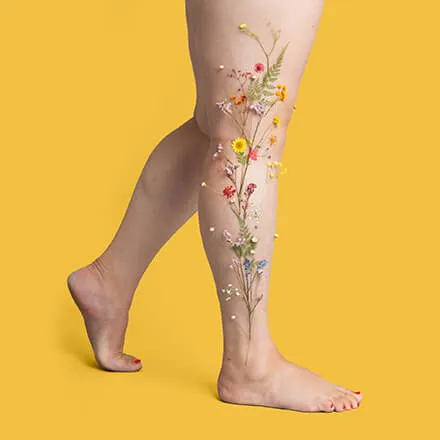Venous disease, which include conditions like spider veins, varicose veins, and chronic venous insufficiency, impacts millions of people worldwide and is associated with worsening symptoms if left untreated. While lifestyle and environmental factors do play a role in the development of vein disease, a growing body of research highlights the importance of genetic risk factors and family history.
Recognizing the correlation between our genes and the development of these conditions is becoming more and more important for symptom management and prevention. Let's explore some of the key genetic factors that can make certain people more susceptible to venous disease.

The Role of Genetics in Venous Disease
We know that our genetic blueprint can significantly impact future health issues, and our vascular health is no exception.
Genetic Predispositions
Certain inherited genes, as well as gender can make certain people more prone to venous conditions. Although many men are diagnosed with vein disease, being a woman puts you at increased risk developing conditions like venous insufficiency and spider and varicose veins.
Heritability and Familial Patterns
It's common to observe similar venous diseases within families, suggesting a strong genetic component. If you have a close relative that has experienced varicose veins or CVI, you may be at an increased risk. According to a study by Cornu-Thenard et al, if one parent has varicose veins, your risk of developing the condition may be as high as 64%. If both parents have varicose veins, your risk of developing them could be as much as 90%. If neither of your parents developed varicose veins, your baseline risk is still around 20%.

Key Genetic Factors Associated with Venous Diseases
Certain genetic variations have been identified as contributors to vein disease, including:
- Factor V Leiden Mutation: This is a prevalent genetic mutation that increases the risk of blood clots, including deep vein thrombosis (DVT). It makes the blood protein Factor V resistant to inactivation, leading to prolonged clotting.
- Protein C and S Deficiencies: Proteins C and S are natural anticoagulants that help prevent excessive clotting. Genetic deficiencies in these proteins can increase the likelihood of clots forming.
- Prothrombin G20210A Mutation: This genetic variation is associated with elevated levels of prothrombin, which also plays a key role in blood clotting. Higher prothrombin levels increase the risk of venous thromboembolism (VTE) which is a condition where blood clots form in the veins.
- PIK3CA Gene Mutations: Mutations in the PIK3CA gene have been linked to various vascular malformations (VMs), affecting the development and structure of blood vessels, including veins.
- FOXC2 Gene Mutations: This gene plays a critical role in the development of lymphatic and venous valves. Mutations in FOXC2 are associated with lymphedema-distichiasis syndrome, which can also involve venous valve abnormalities and contribute to venous insufficiency.

Genetic Syndromes and Venous Malformations
Certain genetic syndromes are characterized by the presence of (VMs), which is a term to describe when veins do not form normally. These VMs include:
- Klippel-Trénaunay Syndrome: A rare congenital vascular disorder involving a combination of port-wine stains, varicose veins, and soft tissue and bone overgrowth. Its genetic basis is complex and still being researched.
- Parkes Weber Syndrome: Similar to Klippel-Trénaunay, this syndrome also involves vascular malformations and limb overgrowth but is distinguished by the presence of arteriovenous fistulas (abnormal connections between arteries and veins). Genetic factors are believed to play a role in its development.
- Blue Rubber Bleb Nevus Syndrome (BRBNS): Also known as Bean syndrome, this is a rare genetic condition characterized by small, bluish-purple, rubbery lesions (blebs) that develop on the skin and inside the body, including the digestive tract.
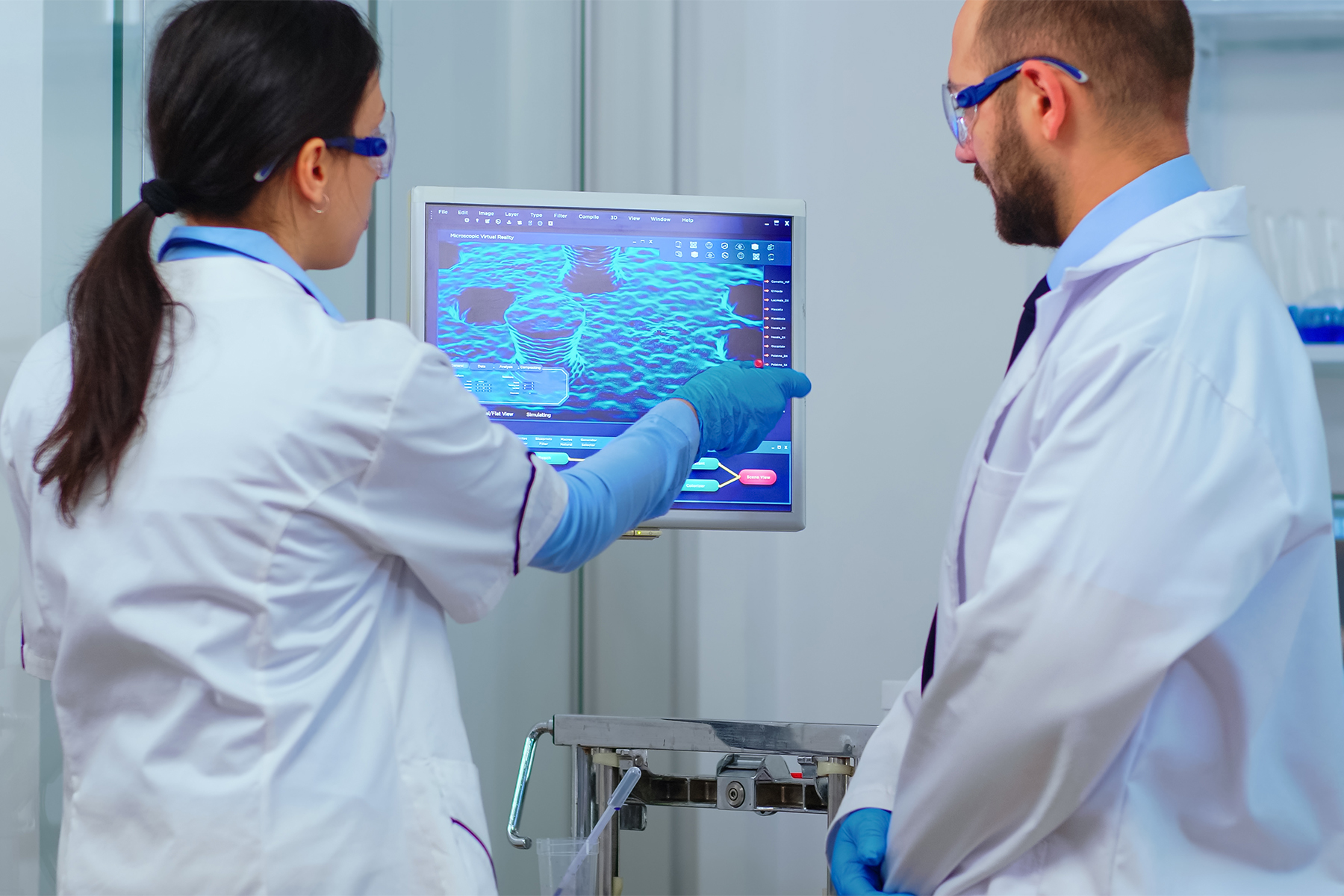
Genetic Testing and Risk Assessment
Genetic testing can be a valuable tool in assessing your risk of developing specific vein conditions. Your vein specialist can recommend what testing is appropriate for you. For example, genetic testing may be recommended for individuals with a strong family history of venous thromboembolism, those who develop blood clots at a young age or in unusual locations, or those with recurrent clotting episodes.
A positive result doesn't always mean you will definitely develop a venous disease, but it indicates an increased risk that should be discussed with your healthcare provider for appropriate management strategies.
Implications for Treatment and Management
Understanding the genetic factors can influence how venous diseases are managed by your vein health provider. They will identify your risk factors, recommend genetic and diagnostic testing and then develop a treatment plan tailored to your specific history.
For individuals with known genetic risks, proactive measures like lifestyle modifications, careful monitoring, and in some cases, minimally-invasive vein disease treatments if symptoms of vein disease develop.
Future Directions in Research
The field of genetics and venous disease continues to evolve. Ongoing research is focused on uncovering new genes and genetic variations associated with different types of venous diseases.
While still in its early stages, future research may explore the potential for gene therapy or other novel vein treatments that target specific genetic factors that contribute to the development of venous disease.
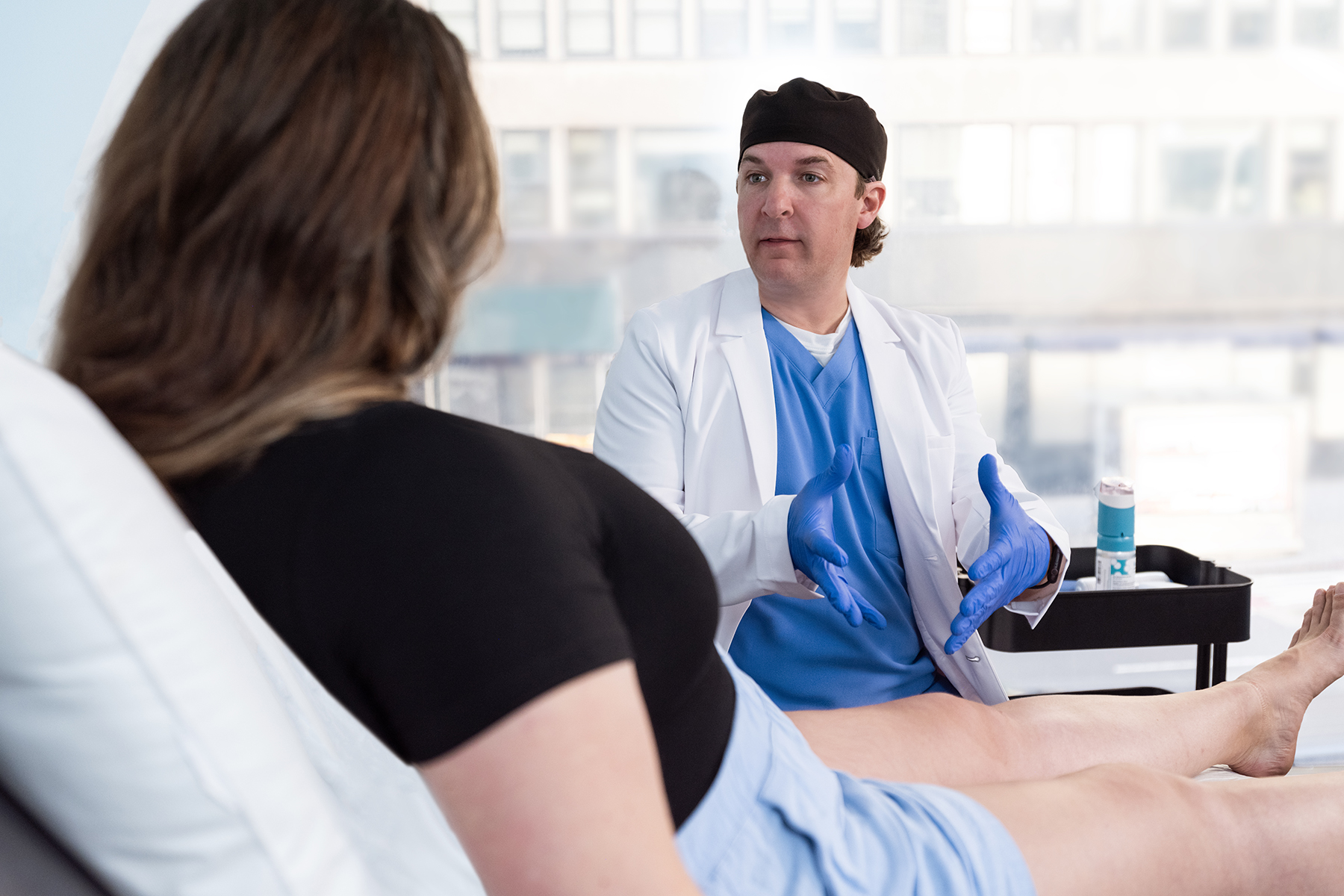
Conclusion
Genetics plays a large role in the development of various venous diseases. As part of your vein health evaluation, your doctor will look at your entire health history, including any family history of vein disease or genetic factors, and make testing and treatment recommendations. As research in this area continues to evolve, there may be new treatments available to you.
If you have a strong family history of venous disease or have concerns about your genetic risk, you can take a proactive step and schedule a free vein health evaluation with one of our board-certified vein doctors, who can discuss genetic testing and preventive measures with you.
Frequently Asked Questions
How does the Factor V Leiden mutation increase the risk of deep vein thrombosis?
The Factor V Leiden mutation causes a specific change in the Factor V protein, leading to a procoagulant state, meaning the blood is more prone to forming clots, which can increase the risk of deep vein thrombosis.
Can genetic testing predict my likelihood of developing varicose veins?
It depends. While genetics plays a role in the development of varicose veins, both genes and environmental factors play a role. Genetic testing might identify certain predispositions related to vein wall structure or valve function, but it alone cannot predict whether you will develop varicose veins. A strong family history is a more significant indicator.
What is the relationship between the PIK3CA gene and venous malformations?
The PIK3CA gene provides instructions for making a protein involved in cell growth and division. Mutations in this gene can lead to abnormal behavior of this protein, leading to an overgrowth of blood vessels, including veins, and the development of various VMs.
Are there preventive measures for individuals with a family history of venous thromboembolism?
Yes, individuals with a family history of venous thromboembolism can take preventive measures such as maintaining a healthy weight, staying active, avoiding long periods of immobility, staying well-hydrated, and discussing their risk with their doctor, who may recommend specific strategies like the use of anticoagulant medications for high-risk situations.
How do FOXC2 gene mutations affect venous valve development?
The FOXC2 gene guides the proper development and function of venous valves, which ensure unidirectional blood flow. Mutations in this gene can lead to valve weakness and issues like venous insufficiency.
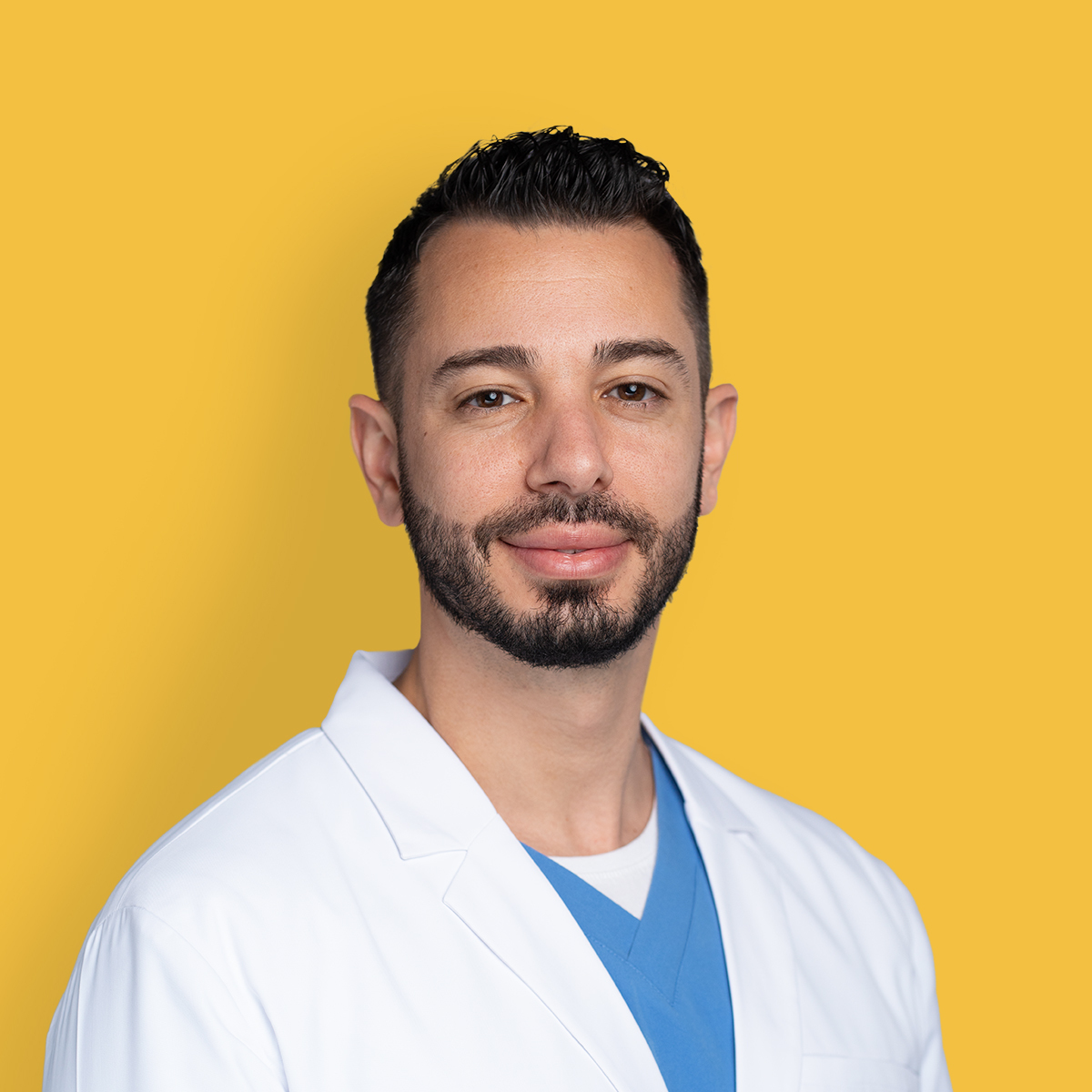
Dr. Milad Asfar
Meet Milar Asfar, DO, a highly-rated doctor specializing in the treatment of vein conditions. Schedule an appointment in MI today.
Meet Dr. Milad Asfar
Trusted insight from the nationally accredited, board-certified vein doctors at Metro Vein Centers.


